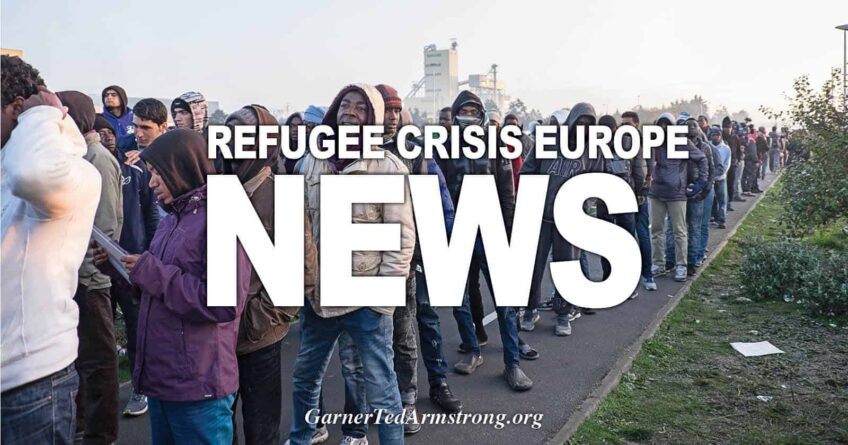Results from the two small central European nations will be illustrative of the direction in which central European politics is headed today.
The coming two weekends will bring elections in Austria and the Czech Republic.
The stakes are considerably lower than in the Dutch, French, and German elections that seemed decisive for the survival of the European project itself.
Yet, the results from the two small central European nations will be illustrative of the direction in which central European politics is headed today. In all likelihood, the centre will hold. Yet, it will be a different centre from the one many have taken for granted.
Although coalition mathematics are bound to be complicated, on 15 October, Austrians are expecting an electoral triumph of the centre-right Austrian People’s Party (OVP), led by the 31-year firebrand foreign minister, Sebastian Kurz. In one sense, that looks a relief for the centrists.
Following the 2015 refugee crisis, Austria saw a dramatic rise in support for its far-right populist party, the Freedom Party of Austria (FPO), whose presidential candidate was only defeated narrowly in the presidential election in December last year.
As the refugee crisis reverberated throughout the EU, the FPO’s promises to retake control of Austria’s borders and its rejection of Islam, which was “not a part of Austria,” resonated.
‘Austria First’
But no matter how effective the rebranding of FPO – which is now running under the slogan of “Austria First” – has been, there is no sugarcoating the party’s heritage. FPO was founded by former SS officers. Today, it maintains close ties to Russia, including an explicit endorsement of the annexation of Crimea.
Kurz, at the helm of OVP since May, has been successful in capturing large chunks of FPO’s electorate by appropriating its own topics.
Two years ago, he proposed a law on Islam that would ban foreign funding to Austrian mosques in order to prevent radicalisation. More recently, he has called for the EU to concentrate incoming migrants and asylum seekers on islands off mainland Europe and has pledged to reduce the social benefits available to them.
Simultaneously, he is embracing a youthful and informal Macron-like style of politics, populating the candidate list with new faces. That is a novelty in country where politics has long been consensus-based, predictable, and bland.
Austria’s foreign-born population is large and has grown substantially over the past decade. The country has also been a destination for asylum-seekers that have been arriving on Europe’s shores since the outbreak of conflicts in Syria and Libya.
Czech-mate
Immigration has been also at the centre of Czech political debates, although the country is home to only a small foreign-born population – a plurality of whom are Ukrainians and Slovaks.
In Prague, it is the billionaire Andrej Babis who seems poised to become the country’s next prime minister after the parliamentary election to be held on 20-21 October.
Five years ago, Babis started a centrist populist movement called ANO (an acronym for “Alliance of Dissatisfied Citizens,” but which also means “Yes” in Czech), which came in second in the 2013 election, catapulting its leader into the office of finance minister in a coalition cabinet led by the Social Democrats (CSSD).
Babis lacks Kurz’ refinement. He bluntly called refugees from the Arab world “the greatest threat Europe faces” and argued that not a single asylum seeker should be allowed into the country.
Still, he’s managed to reconcile that populist tone with a dose of international respectability (ANO remains a member of the liberal ALDE group in the European Parliament) and ability to speak to a centre-right, urban electorate – not to mention his surviving the curse of being a junior coalition partner in an unmemorable government.
Media mogul
Recently, however, his numerous conflicts of interest have been haunting him.
Babis, who owns two of the leading broadsheet newspaper and whose conglomerate of companies is the largest private-sector employer in the country, is being investigated for fraud involving EU subsidies used to fund the construction of his signature resort in the Bohemian countryside, the Stork’s Nest.
As a result, his power will be kept in check by his need to seek or more coalition partners in order to form a government with a parliamentary majority.
Neither the Austrians not the Czechs need to worry yet about a Fidesz (Hungary) or Law and Justice (Poland) style authoritarianism at home. In that sense, the centre will hold.
However, the future Czech and Austrian governments will likely borrow from Viktor Orban’s and Jaroslaw Kaczynski’s foreign and EU policy playbooks, slowly pushing the so-called ‘Overton window’, or possible political spectrum, in central Europe away from an EU-wide compromise on asylum policy and reforms of the eurozone – which the Czechs adamantly refuse to join.
How well the leaders in Berlin, Paris, and Brussels can handle such dynamics remains an open question.
Source: https://www.aei.org/publication/can-the-centre-hold-in-central-europe/
[Disclaimer]








